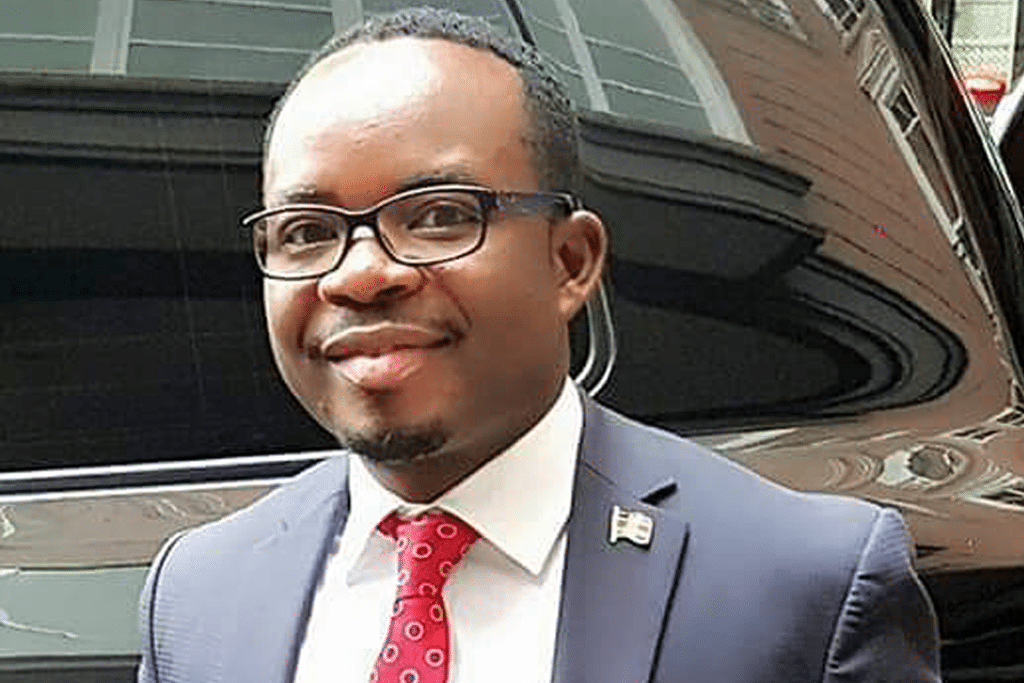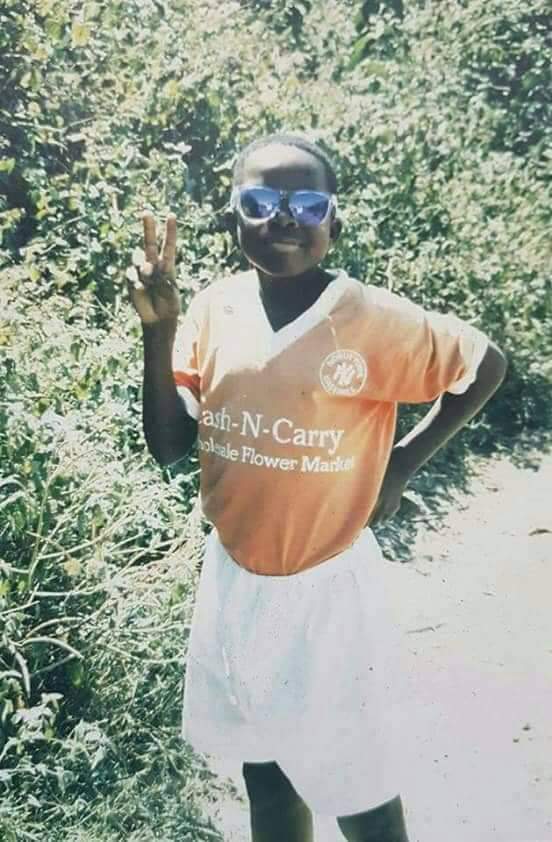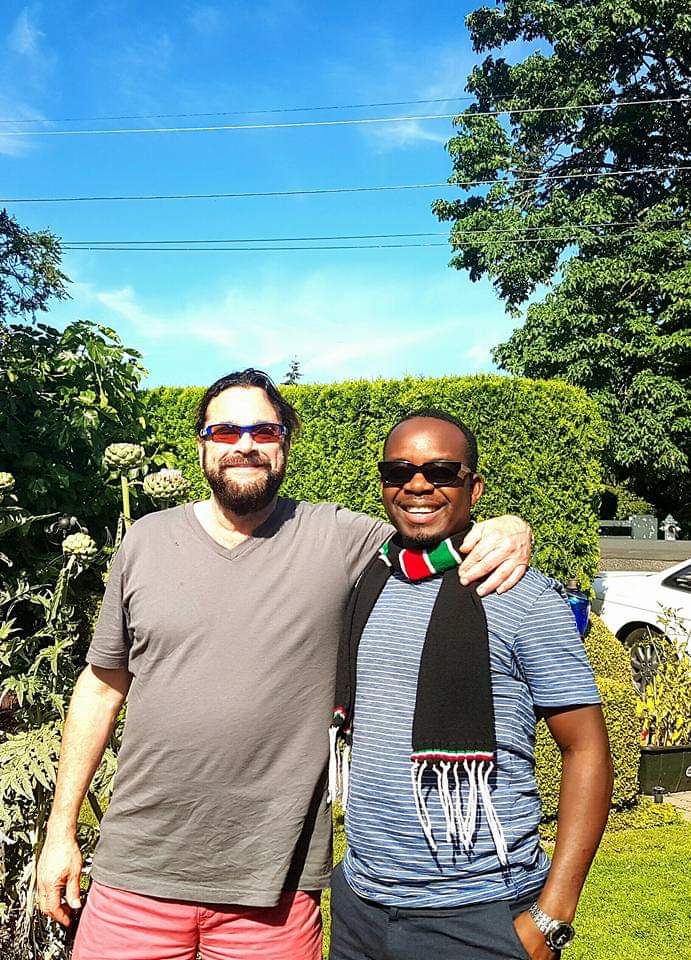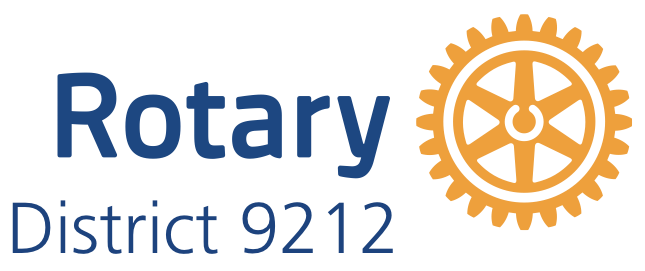From a Young Fisherman to a World of Opportunities|How a Rotarian’s Generosity Empowered a Young Boy.

Silas Jakakimba, formerly Silas John Ouko, nearly dropped out of school, were it not for the generosity of a Rotarian.
Rotarian Seth Landau from the Rotary Club of Mercer Island, Seattle, Washington State took him up and educated him.
Silas now a Senior Partner at SES Law Advocates LLP; an advocate of the High Court of Kenya; a pillar to his community and family; a mentor to many and most importantly a father to three adorable boys. To achieve such feat, he has overcome many odds and earned numerous accolades throughout the journey.
I caught up with Silas at his office to understand his life’s journey and how Rotary as a whole, played a part in his upbringing. He is charismatic and confident, yet a humble and empathetic person who is keen to have genuine and very engaging conversations.
Why the change of name?
When I joined The University of Nairobi to pursue my undergraduate degree in Law, I got involved in student politics. As part of my campaign strategy, I constituted a Political Bureau that acted as my advisory team.
They observed that the national politics was a pure reflection of the campus politics and this also encompassed negative ethnicity. In order to ensure a level playing ground, I changed my name to Jakakiimba and dropped the name Ouko. The name Kakimba is my clan name, and also happens to be the name of my village. Jakakimba translated to “the man from Kakimba”. From then I applied for a name change and it became official.
How did you meet Rotarian Seth?
I performed exemplary well in my primary school national exams and earned a slot at Kanga High School, which is still an excellent performer. However, due to lack of fees, I could not transition to secondary school and therefore resulted like any other boy in my village to fishing in Lake Victoria as a way to assist my family.
One sultry afternoon, as I was hanging out with my friends by the shores of the lake, I spotted some tourists-two couples who were being shown around the Island by a tour guide. They walked up to us and in a touristic fashion greeted us in their customary cavalier manner ‘Jambo’. Being the young confident boy that I was, I replied back and further continued conversing with them in English.
Rotarian Seth was holding a packet of sweets and my only aim then was to win myself the sweets. Never had I imagined that would be the one thing that would open doors for me.
He gave me his address and requested that I write a letter to him attaching the fee structure and my admission letter to my school of choice. I went to the nearby school, Kakimba Secondary School, got an admission letter, called upon my cousin who assisted me in drafting and posting the letter, and in no time I received a reply.
Through the help of the then President of the Rotary Club of Mombasa, Past District Governor Amin Merali, and later Rotarian George Opondo Ooko of Rotary Club of Nairobi , my fees was sent and paid in full.
Yes, I still got the sweets after all. (chuckles)

What are the lessons you have learnt from interacting with Rotarian Seth?
In all his teachings, he re-emphasized the core values of humility, honesty, love for everyone, accountability, love, and embracing my culture at all costs.
His means of teaching was value-based. He used to write me letters as often as he could and, in those letters, he would re-enforce the values that he would want to see in me growing up.
He also used to constantly open me up to a world full of possibilities and set the standards so high that it kept me going no matter how hard my circumstances got.
How have you been able to keep in contact with him for so many years?
My relationship with him has been deliberate and intentional over the years. I consider him a father to me and hence I treat him as such. I visit Seattle annually together with my children to check up on him. One of my children is in fact named after him.

What influenced your choice of undergraduate course at the university?
In high school, I performed exemplary well in the sciences and my career of choice then was neurosurgery. One of the reasons behind this was I greatly admired and looked up to Ben Carson.
All this time I was in communication with Rotarian Seth and he agreed with my then career choice. However, he insisted that I should go abroad to either Oxford University or Yale University to further my studies and all this he was ready to fund.
I missed a mark to pursue my chosen course but this did not deter me. One of my dreams was to come and visit Nairobi. I, therefore, boarded a hearse that was coming back from a funeral in the village. I came to Nairobi revised my courses through The Joints Admission Board to prioritize law, with a strong bias to pursue it at The University of Nairobi.
Even during that time, I still was not settled. In conjunction with Rotarian Seth, we had made a decision that I would still get to pursue medicine as a second degree but this never came to fruition.
Have you had opportunities to give back to the community?
Yes, I have taken each opportunity accorded to me as a chance to empower another person. Charity begins at home and hence I took it upon myself to educate my siblings especially in their later years. Further, I do many talks in schools back in my village, I have my mentees who I support in different capacities and I serve in the boards of my former schools.
Why then are you not a Rotarian and yet your lifestyle is the perfect embodiment?
I believe I have been a Rotarian all of my life. I am a Rotarian by my deeds and actions. I believe in service above self. The four-way test is my guide in all that I do and seek to do.I am now eagerly looking forward to settling on a club and calling it home.
I have visited several Rotary Clubs in Kenya, among them the Rotary Club of Nairobi, Rotary Club of Nairobi East, and Rotary Club of Nairobi-Gigiri, among others.
To what extent do you consider formal education to be important?
Allow me to explain this through my siblings. All of us, due to lack of fees at one point or the other, had to drop out of school.
For instance, one of my sisters passed in flying colours and was admitted to Asumbi Girls’ High School but had to drop out due lack of fees, later got married, and settled on tailoring which is her business up to date.
I am sure if things were different and she got access to secondary and higher education, her reality would be different. When one misses access to formal education especially when they exhibit great potential, it affects a myriad of things in the long-term, often negatively.
When I was in campus, Rotarian Seth fully supported me financially. I still took up the HELB (Higher Education Loans Board) Loan, which I used to pay my younger sister’s, (Jane) education. She pursued nursing and has been in the front-line fighting Covid-19.
Even with the above, I have taken it upon myself to educate my siblings whether old, married and even their children just to enable them to access a fair chance at life.
As Horace Mann once said; “Education is the greatest equalizer of the conditions of men.” Formal education grants you the premise to approach life.
What was your experience on meeting with Bill Gates and what lesson have you carried through to the rest of your life?
During my campus days, I was very active when it came to youth governance and empowerment, which thrust me into the limelight. At the same time, I was pursuing my undergraduate degree and somehow, I had to find a balance between the two. This proved a bit tricky but I excelled and made it to the Dean’s List.
At 26, I became the youngest student to earn a Master’s degree in law from the University of Nairobi. This was no mean feat. Rotarian Seth got wind of the news and he shared with his friend, Bill Gates.
This whole time, Rotarian Seth’s friendship with Bill Gates was a well-kept secret. Over the years, Rotarian Seth had always kept Bill Gates informed on my progress.
I was invited to Seattle where Rotarian Seth later dropped me at Bill Gates offices. We had a conversation for about 47 minutes and he even organized for a picture of us to be taken which I came to understand later was uncharacteristic of him. He expressed his excitement on my achievements and emphasized how proud he was of me over the years.
It was quite a humbling experience as I had been accorded a platform and space only given to dignitaries. The striking qualities that stood out most for me were his humility and genuineness.
Among the things we discussed were the issues affecting the Bottom Billion, particularly health (eradication of Malaria and Polio in conjuction with Rotary) and he reinforced his passion for seeing a healthy and better world.
If you segment your life into phases, which one stands out for you?
My life and times with my grandmother, Dorina stands out for me. Most people would assume that I would mention a season that involved a milestone I achieved. However, I consider those times to be my processes of grace.
Initially, we lived a fairly good life and we were able to gain access to basic needs. My mother sold fish while my father fished. Whatever they earned was enough to enable us to get by and even to further stretch a helping hand to others.
At some point in our blissful reality, my mother passed on due to pregnancy-related issues and from there everything went downhill. After her funeral, we had to be split among our relatives and my younger sister and I ended up with our grandmother.
She lived a Christ-based life and never allowed disillusionment to be the order of the day. We may have lacked in resources but she heavily compensated with her love for us.
I remember there were times where we did not have any meal for up to three days. We would often borrow flour from our neighbours then make the most diluted porridge we possibly could, just to keep us going for a few more days.
One vivid instance that has stuck with me to date is when my younger sister, in a bid to instill hope during one of our disillusioned moments, gave me bits of the solid cooking oil that had remained on the wrapping of the polythene paper just to apply on myself.
This was during a moment in our life when we could not afford bar soap for a bath. We often used to go to the shores of Lake Victoria and extract a seaweed we referred to as “Osanu” which when rubbed extracted something that appeared to look like foam that we would then use as bathing soap. We would then take the solid cooking oil that had remained on the flimsy polythene paper and apply it on our bodies just to remove the paleness our bodies exhibited.
As I reminisce the moments, I am in awe of the love that my family gave to me even during our lowest times.
I attribute my current successes to the values my grandmother instilled in me when I was a young boy: perseverance, resilience, humility, and grit. Interestingly, when Rotarian Seth walked into my life he took it upon himself to emphasize the same values.
What is your parting shot?
Always reach out and get to know how people are doing. Through that, we can ameliorate peoples’ standards of living. As Winston Churchill once put it, “We make a living by what we get but we make a life by what we give.”
By Karen Rono |ronokaren5@gmail.com
Rotary is a global network of 1.2 million neighbors, friends, leaders, and problem-solvers who see a world where people unite and take action to create lasting change – across the globe, in our communities, and in ourselves.





I’m personally happy of your success out of the struggles. God’s grace be with Rotarian Seth.
God bless Bro Silas
Indeed God is the author of our lives. At His appointed time, He sends angels to pick up our cases. May He richly bless you and your family, as well as Seth and his family.
I’m really encouraged with this story.Extend your hands not only your family members but also the community at large just as your sponsor did Incase you are able wish you all the best and may God bless you.
When on Earth our episode is penned, let it be that ours give folks the courage to extract hope out of the mountain of despair they experience.
Yours is an example Jakakimba.